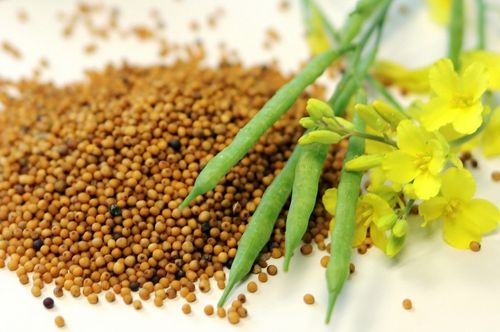EPA issues RFS pathway approval for BP facility processing carinata oil

Brassica carinata. / SOURCE: USDA
June 13, 2024
BY Erin Voegele
The U.S. EPA on May 22 announced it has approved a Renewable Fuel Standard pathway for BP Products North America’s Cherry Point refinery in Blaine, Washington, that will allow the facility to generate D5 advanced biofuel renewable identification numbers (RINs) for renewable diesel produced via a hydrotreating process that coprocesses carinata oil and petroleum.
The EPA in 2015 opened a public comment period on its analysis of the greenhouse gas (GHG) emissions attributed to the production Brassica carinata oil feedstock used to produce biofuels, including biodiesel, renewable diesel and sustainable aviation fuel (SAF). At that time, the EPA said the analysis may be used in the future to determine whether biofuels produced using carinata oil feedstock meet the necessary GHG reductions required for qualification under the RFS. The EPA in 2022 approved an RFS fuel pathway allowing Renewable Energy Group Inc. to generate D4 biomass-based diesel RINs and D5 RINs for certain biofuels produced using carinata oil feedstocks.
The agency referenced both the 2015 comment period and 2022 REG pathway approval in its May 22 pathway approval document for the Cherry Point refinery, and said its analysis estimates that renewable diesel produced at the BP Cherry Point facility from carinata oil feedstock achieves a 51-61% GHG reduction when compared to the statutory petroleum baseline. A renewable fuel must achieve at least a 50% GHG reduction to qualify as an advanced biofuel under the RFS.
Advertisement
BP in May released a statement discussing renewable fuel production at the Cherry Point facility, indicating that refinery, which has the capacity to process approximately 250,000 barrels of crude oil per day, began producing renewable fuels via coprocessing in 2018. The facility has coprocessed beef tallow, used cooking oil, canola oil, soybean oil and corn oil, among other materials.
A full copy of the EPA’s pathway approval document is available on the agency’s website.
Advertisement
Related Stories
CountryMark on July 22 celebrated the completion of more than $100 million in upgrades at its refinery in Indiana, including those related to soybean oil storage. The facility produces renewable diesel via coprocessing technology.
ATOBA Energy and Air Moana are partnering to implement scalable solutions for the supply of SAF. The collaboration aims to ensure long-term SAF availability while supporting local initiatives to develop sustainable fuel production in Tahiti.
While final IRS guidance is still pending, the foundation of the 45Z program is well defined. Clean fuel producers should no longer be waiting; they can now move forward with critical planning and preparation, according to EcoEngineers.
Neste Corp. on July 24 released second quarter results, reporting record quarterly renewable product sales volumes despite weaker margins. SAF sales were up nearly 80% when compared to the first quarter of 2025.
Valero Energy Corp. on July 24 released second quarter results, reporting a profitable three-month period for its ethanol segment. The renewable diesel segment posted a loss, but the company’s new sustainable aviation fuel (SAF) unit operated well.
Upcoming Events










